by Martin Green
Every watch collector or connoisseur usually has one: a grail watch.
This deeply horological term comes from the Holy Grail, the vessel from which Jesus drank at the last supper, which was later used to catch his blood when he was crucified. This, the most sought-after Christian relic, is prominent in pop culture, with both Indiana Jones and Monthy Python standing as good examples having fictitiously chased it.
Watch collectors often share the same determination to get their grail watches as these fictional characters did onscreen. In general, grail watches have at least one of these two things in common.
- They are hard, sometimes even impossible, to find.
- They demand a significant financial investment, usually more than you are comfortable spending.
A grail watch can be pretty much anything. But one thing a grail watch always is is personal. Very personal.
Some might dream of a white-dialed Rolex GMT-Master Reference 6542, while others wake up in sweat at the thought of an Audemars Piguet Royal Oak Grande Complication. Some may want a current generation Grand Seiko, while others can’t shake the thought of a Svend Andersen made especially for them.
Finding your grail
I was introduced to my personal grail watch by a close friend of mine who had recently treated himself to a new watch.
At the time I had no idea that this would become my grail watch, but when he placed his timepiece in my hands, I felt like time stood still. A warm glow fell over me: I knew I held in my hands true horological perfection!
The watch in question was a Louis Cartier Tank. When the generic “Tank watch” is mentioned, this is usually is the version most people think of.
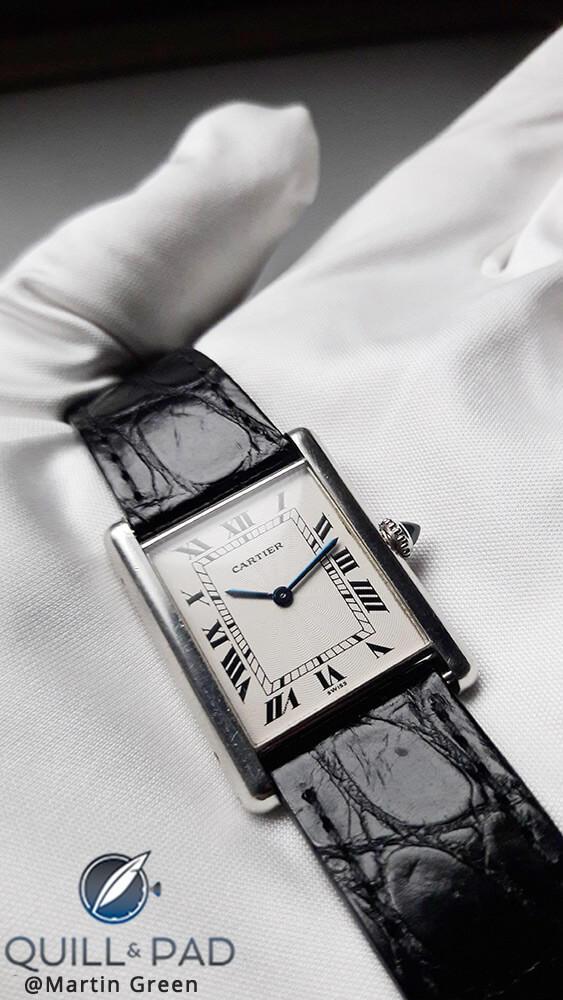
Martin Green’s grail watch: the Louis Cartier Tank
It wasn’t Cartier’s first Tank watch; that honor belongs to the Tank Normale introduced in 1917.
Louis Cartier was so inspired by the non-round concept that he created the Tank bearing his name two years later in 1919. During Cartier’s lifetime many other Tank models followed, each reaching legendary status, yet still never quite as legendary as the original Louis Cartier Tank.
Rudolph Valentino refused to take off his Tank in 1926 while filming The Sheik, despite the fact that at the time the movie was set, wristwatches didn’t even exist.
Andy Warhol was even so fond of the Louis Cartier Tank that he owned several of them.
Despite the fame of this particular model, Cartier has always been quite conservative with the versions in which the Louis Cartier Tank was available: it has only been available as a manual wind in either yellow gold or platinum, one size fits all, for decades.
With the introduction of quartz movements, Cartier also allowed one in the Louis Cartier Tank and even went so far as to add a date.
It was only in 2005 that Cartier introduced the larger Louis Cartier Tank XL, now also available in pink gold, but even in that watch the original “DNA” was closely guarded.
Not all Tanks are created equal
But all those models didn’t matter to me because the moment I had my friend’s Louis Cartier Tank in my hand it became my grail watch.
The problem was that this wasn’t just any Louis Cartier Tank, it was a platinum pre-CPCP Louis Cartier Tank.
“CPCP” stands for “Collection Privée Cartier Paris,” a line of high-end watches that was available from 1998 until 2008 containing masterpieces from Cartier’s history like the Santos Dumont, Tortue, Tank Obus, and many more.
Some were released as a limited edition, others in small quantities, and among them was the Louis Cartier Tank in both platinum and yellow gold.
The Louis Cartier Tank I desired so much predated the CPCP collection. To most people, these two would look like one and the same watch; yet to me, they are almost completely different animals.
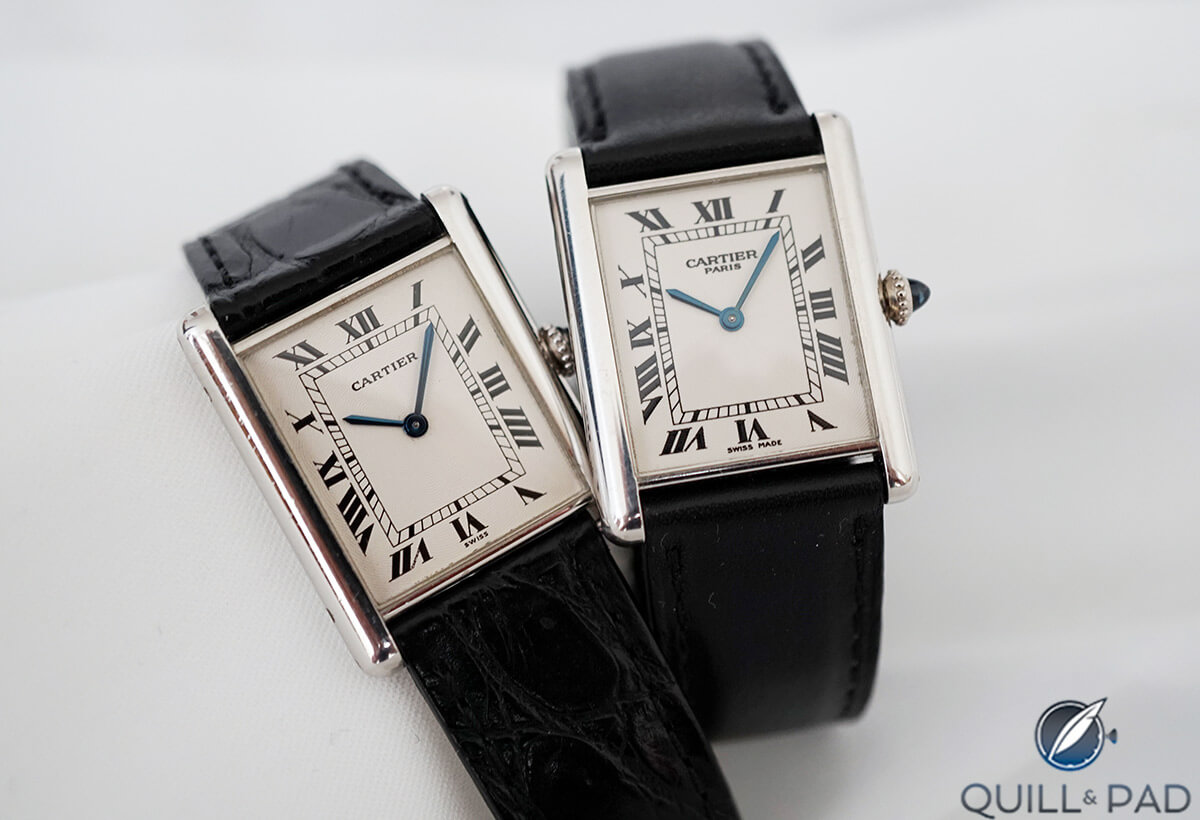
Pre-CPCP Louis Carter Tank in platinum (left) with Collection Privée Cartier Paris Louis Cartier Tank in platinum at right (photo courtesy George Cramer)
A pre-CPCP Tank has a cleaner dial as it lacks the word “Paris” written under Cartier. The guilloche pattern on the dial of the pre-CPCP Tank is finer, and the case features marginally thinner brancards (vertical sidebars).
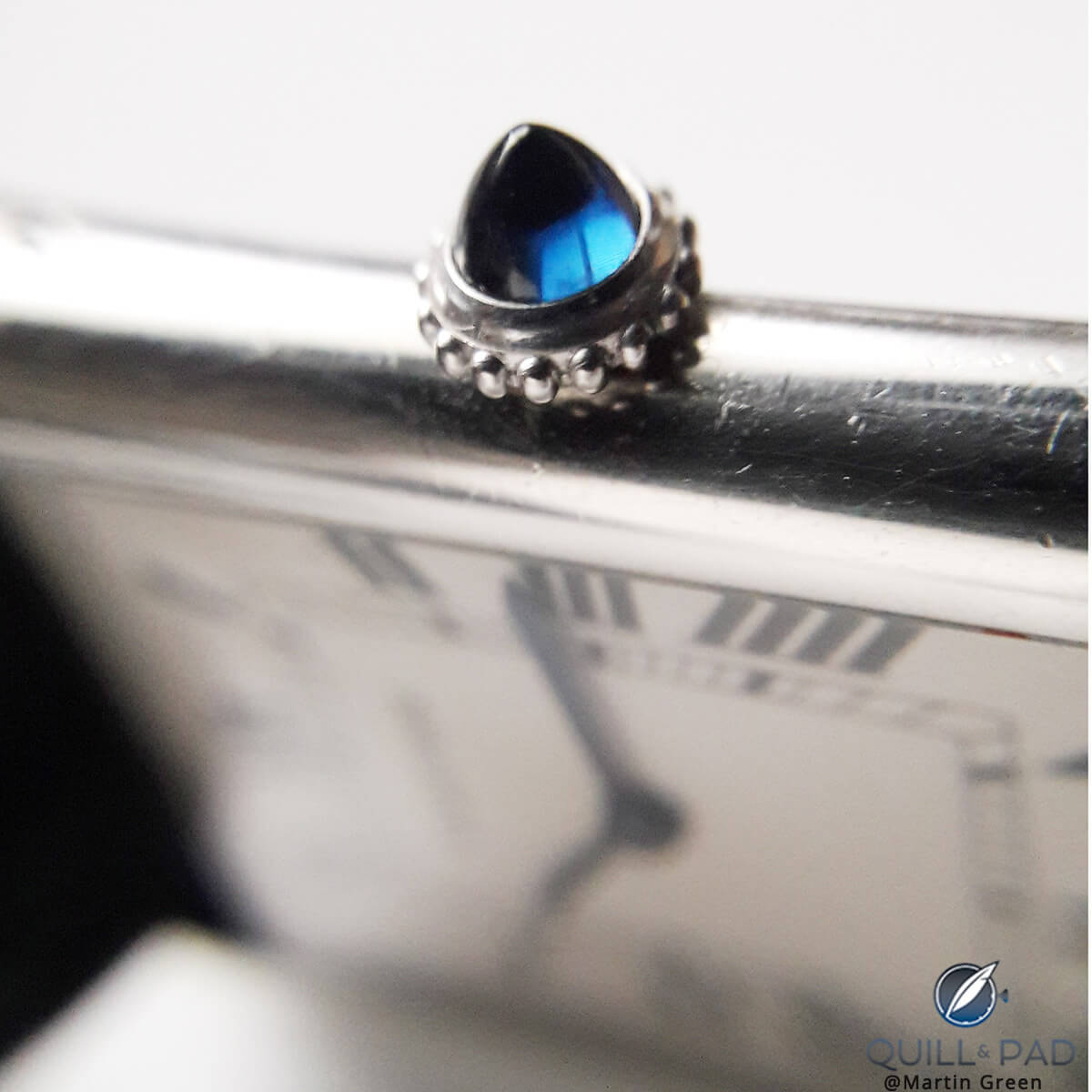
The pointed blue sapphire cabochon of Martin Green’s grail Louis Cartier Tank
Also, the sapphire cabochon in the crown –Cartier’s emblematic horological element – is pointier.
These may be minor details, yet when it comes to grail watches, especially when it comes to grail watches, minor details make all the difference. Interestingly, although the pre-CPCP Louis Cartier Tank was never a limited edition, the production for the platinum case model was so limited that they are extremely difficult to come by.
That platinum case itself was a problem, too. While a yellow gold Louis Cartier Tank was already really, really stretching my budget, the platinum model was even more expensive – even though it significantly contributed to the understatement of the watch. However, yellow gold simply would not do it for me.
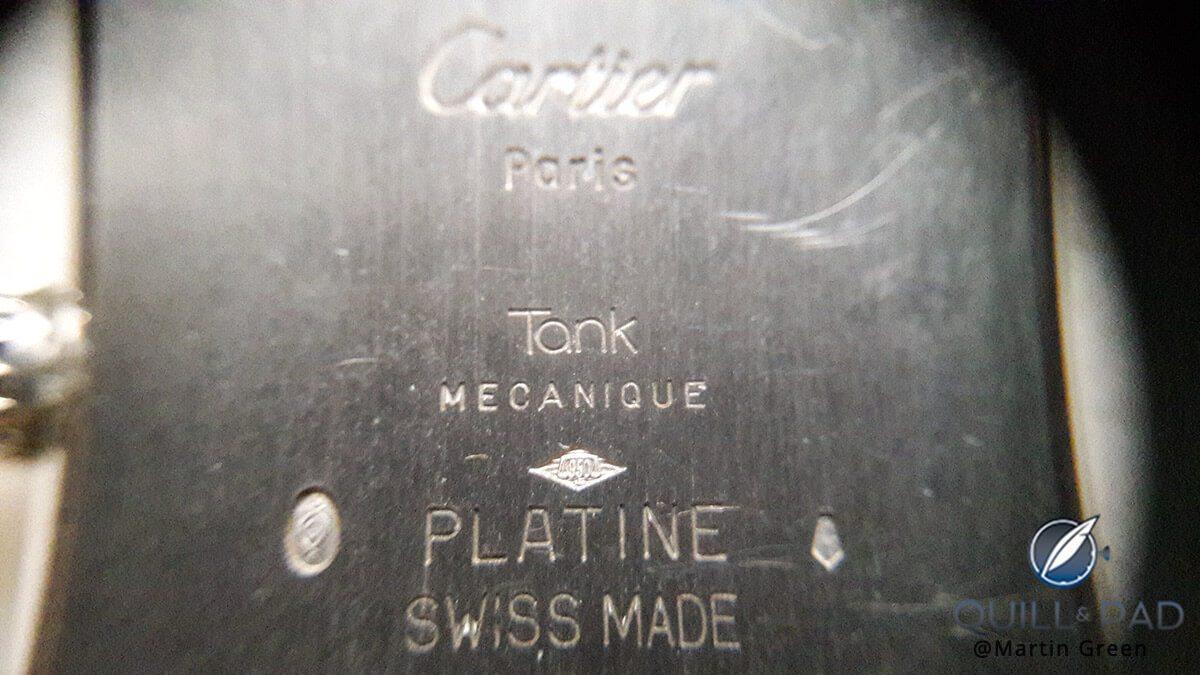
Engraved back of Martin Green’s grail Louis Cartier Tank
Years passed with this grail watch being exactly what many grail watches are: the stuff of dreams and nothing more.
I didn’t come across another pre-CPCP Louis Cartier Tank in platinum during all that time. Which wouldn’t exactly have made a difference because I wouldn’t have had the funds to buy it anyway.
Then, one day my friend suddenly announced that he would sell his Tank.
After the initial shock, I also saw an opportunity. This was the time for me to make this grail watch mine!
Funds were still an issue, but to overcome this I decided to part with a portion of my existing watch collection. Although painful at the time, it helped me close the gap, and I was able to obtain a watch I thought I would never wear.
Living with a grail watch
While grail watches are often discussed among collectors, not many of these conversations are about what happens when you actually obtain your grail watch. Does the magic wear off? Do you wear it or keep it in a safe?
Some might cherish their grail watch so much that they keep it in a safe place, only admiring it from time to time.
I feel differently about this, and want my grail watch on my wrist.
And on my wrist is precisely where it has so frequently been for the near decade that I have been the proud owner of this watch.
In fact, it has boldly gone places where few Louis Cartier Tanks ever go – like the beach (though I did stay out of the water!).
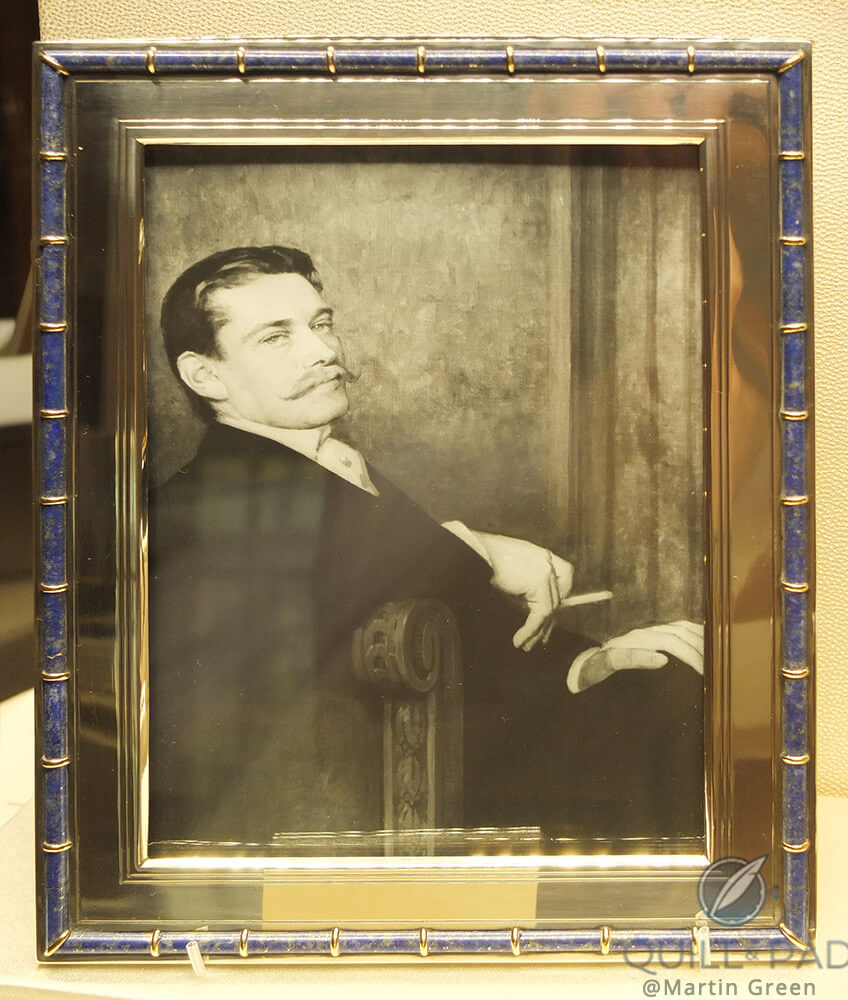
Portrait of Louis Cartier in a Cartier frame
But the most precious memory that I ever had with this watch was when I got the chance to visit the holy ground for any Cartier connoisseur: 13 Rue de la Paix in Paris, the famous Cartier boutique. It was here that I was honored with the opportunity to drink a cup of coffee at the desk of Louis Cartier himself in what was his former office.
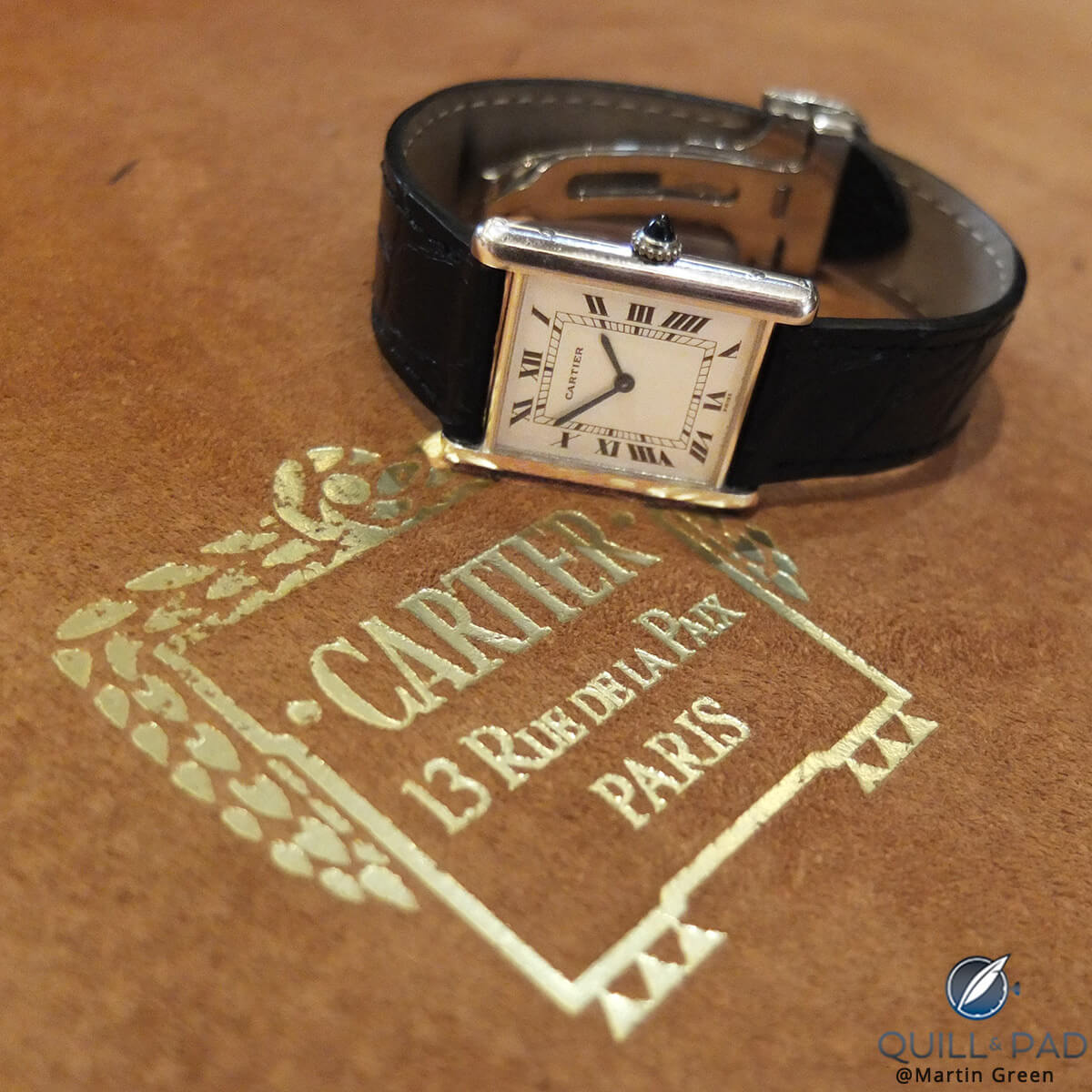
Pre-CPCP Louis Cartier Tank on the former desk of Louis Cartier in Paris
It simply doesn’t get any better than that.
This Louis Cartier Tank pre-dates the time that the brand was a manufacture, so the movement inside it is from Frédéric Piguet: the famed ultra-slim, manual wind Caliber 21. Although the first-generation Louis Cartier Tank watches featured movements by LeCoultre, Caliber 21 was only offered six years after the first Louis Cartier Tank was for sale.
That makes this movement time-appropriate. Another historical aspect of the movement is that for decades it has been the thinnest manual wind movement on the market. It was dethroned in 1946 by Audemars Piguet Caliber 2003, which was just 0.1 mm thinner. Caliber 2003 was created in conjunction with Jaeger-LeCoultre and Vacheron Constantin.
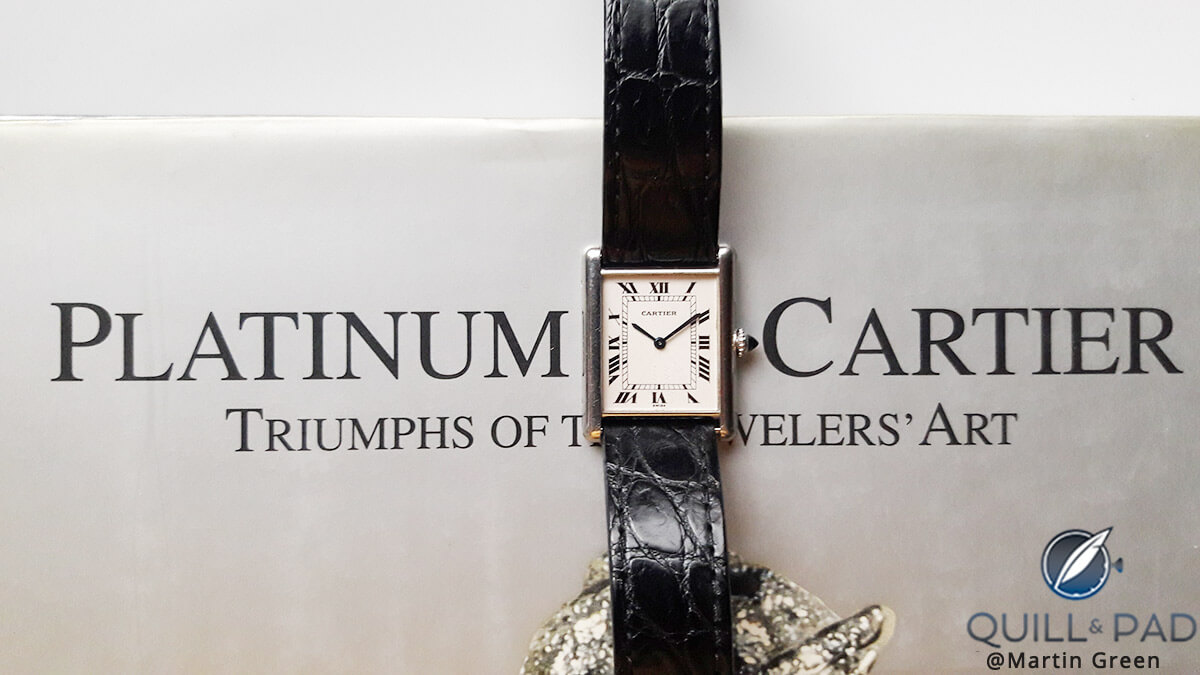
Martin Green’s grail Louis Cartier Tank
I am a huge fan of ultra-slim movements because making a movement thin is one of the most difficult and demanding challenges in watchmaking. Even when brands succeed in it, reliability usually suffers, making the watches fitted with it rare yet fragile gems.
In my personal experience, there are two manual-wind, ultra-slim movements that can handle pretty much anything: Piaget’s Caliber 9P (see Piaget 12P: The Birth Of An Ultra-Thin Legacy) and the Frédéric Piguet Caliber 21 found in this Louis Cartier Tank.
What’s next?
So after finally getting the watch I dreamed of for so long, has its place in my affections now been challenged by another grail watch?
The short answer is no. While there are certainly other watches I would like to add to my collection, there are no others generating that deep burning desire that I felt and still feel for my Louis Cartier Tank.
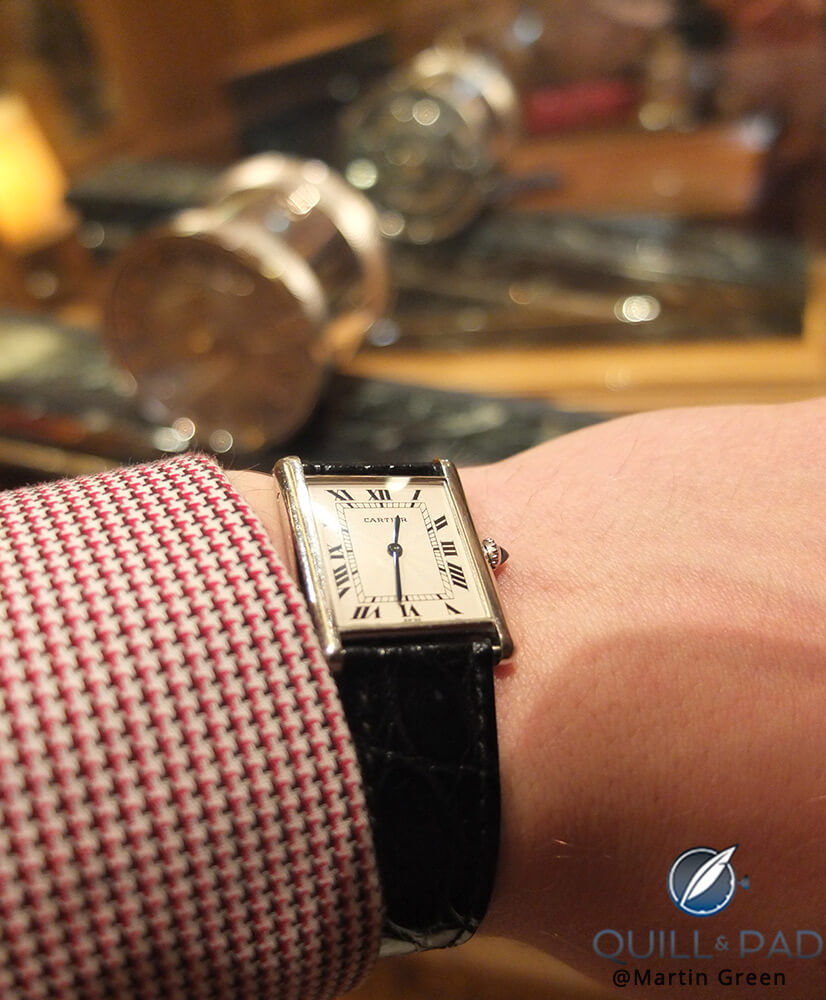
Pre-CPCP Louis Carter Tank in front of a unique piece Cartier 8-day clock in Louis Cartier’s former office at the Cartier Paris boutique at 13 Rue de la Paix
However, if you happen to have a first-generation Pasha de Cartier on a Figaro bracelet for sale . . .
For more information, please visit www.cartier.co.uk/en-gb/collections/watches/mens-watches/tank/tank-louis-cartier.
Quick Facts Cartier Louis Cartier Tank
Case: 33.5 x 25.5 mm, platinum with sapphire cabochon in crown
Movement: ultra-slim manual winding Caliber 21 by Frédéric Piguet for Cartier, 20.8 x 1.73 mm
Functions: hours, minutes
Years of manufacture: 1990s, pre-Collection Privée Cartier Paris (CPCP)
Original retail price as of 1997 on German market: 14,900 German marks
* This article was first published on January 27, 2017 at What’s It Like To Get Your Grail Watch And Live With It? The Story Of My Louis Cartier Tank.
You may also enjoy:
The World‘s First Pilot’s Watch: Cartier Santos-Dumont 1904 To 2018
Face Off: 2018 Santos De Cartier Skeleton Vs. 2010 Cartier Santos-Dumont Squelette
Santos de Cartier 2018: One Of The World‘s First Men’s Wristwatches Reinvented
The Rise And Fall Of Fine Watchmaking At Cartier: It’s Been Surprisingly Complicated
Leave a Reply
Want to join the discussion?Feel free to contribute!








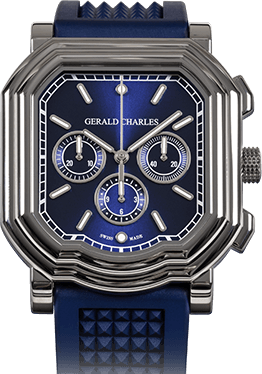
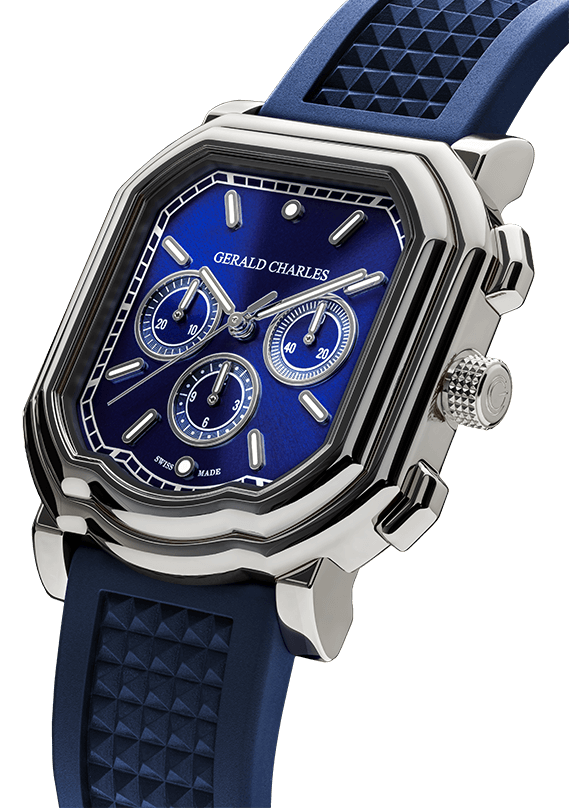

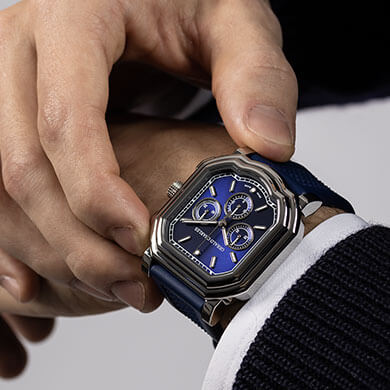
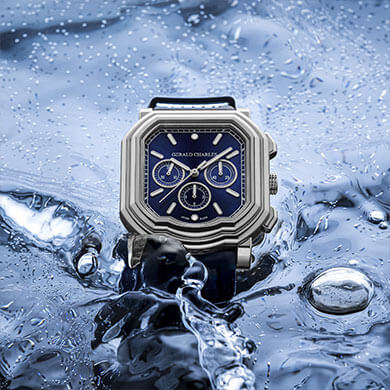

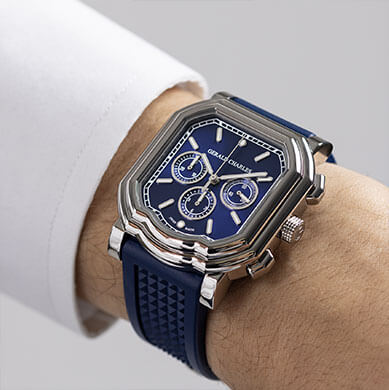



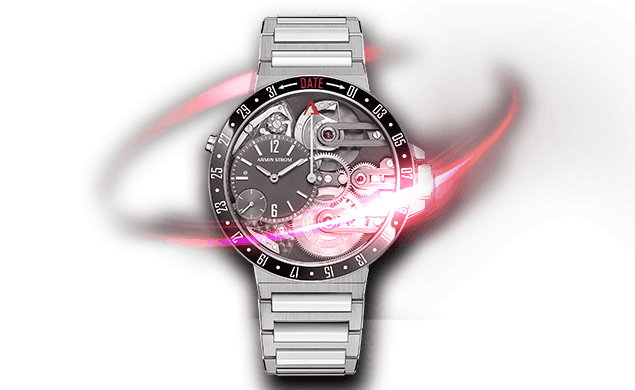
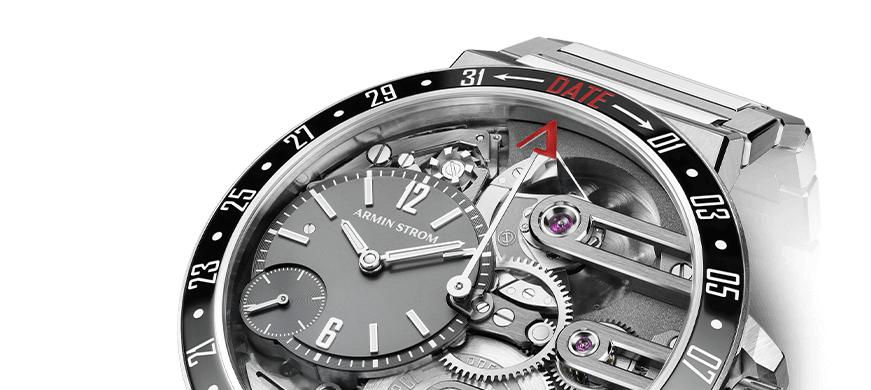
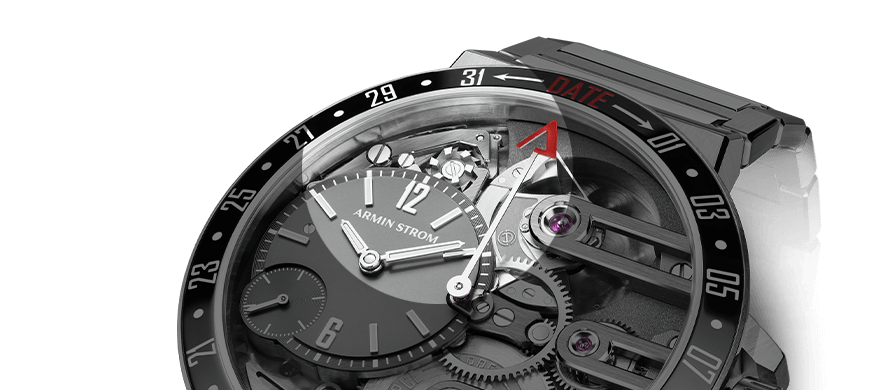


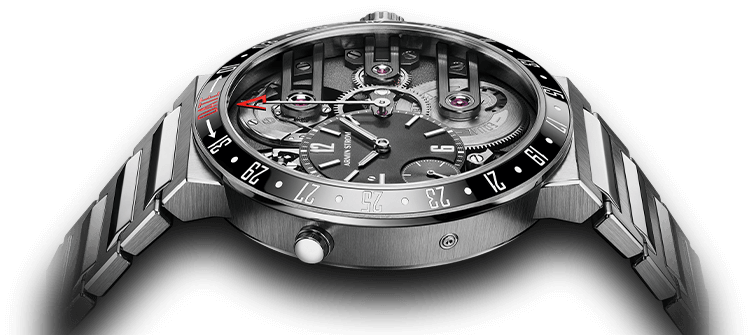


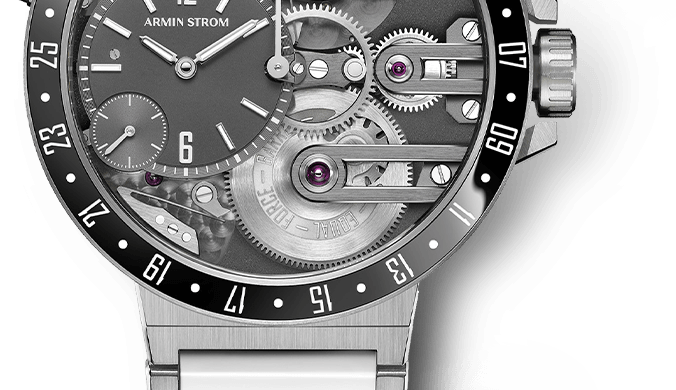
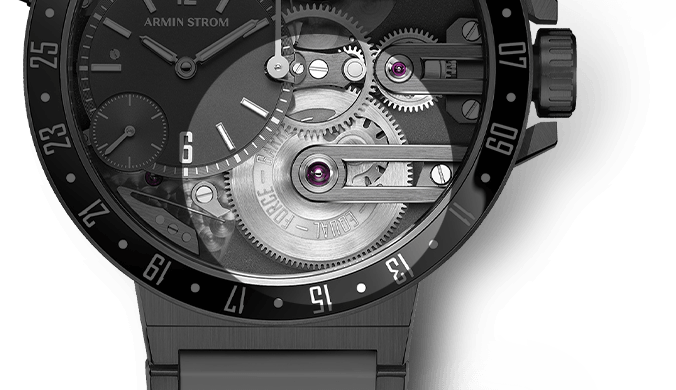


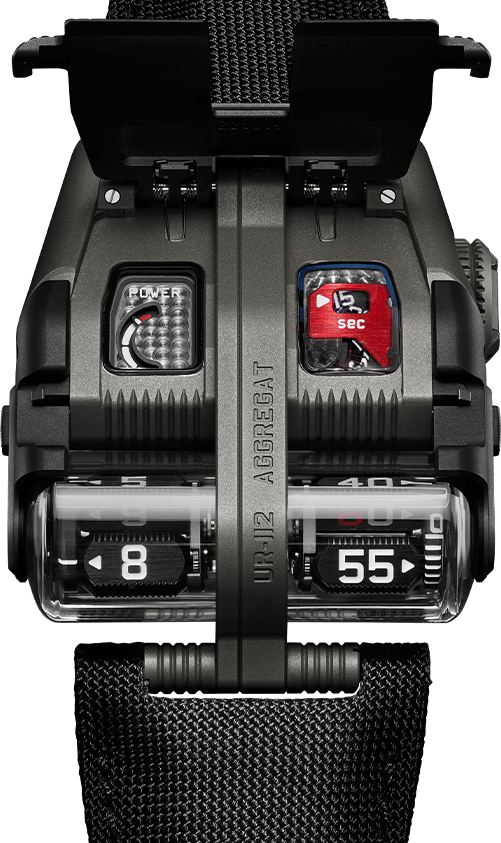

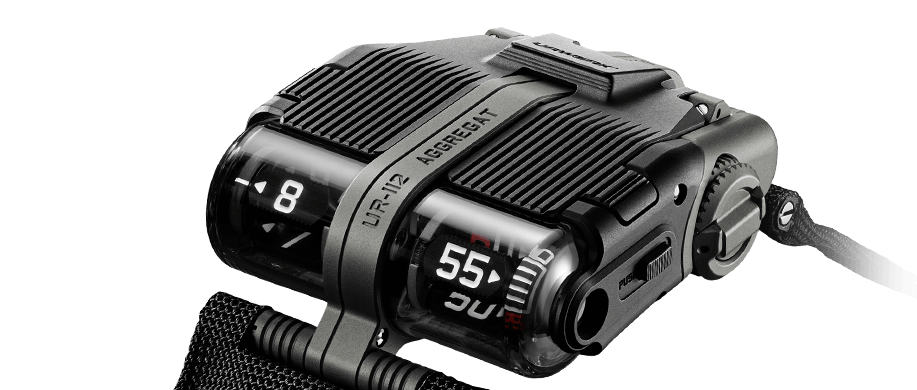
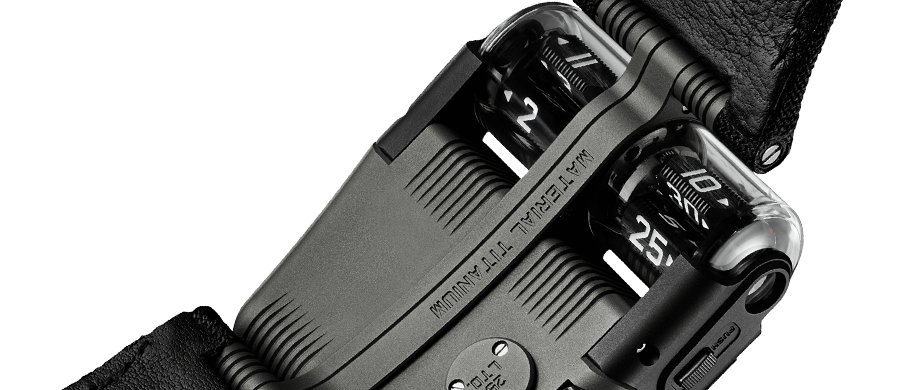
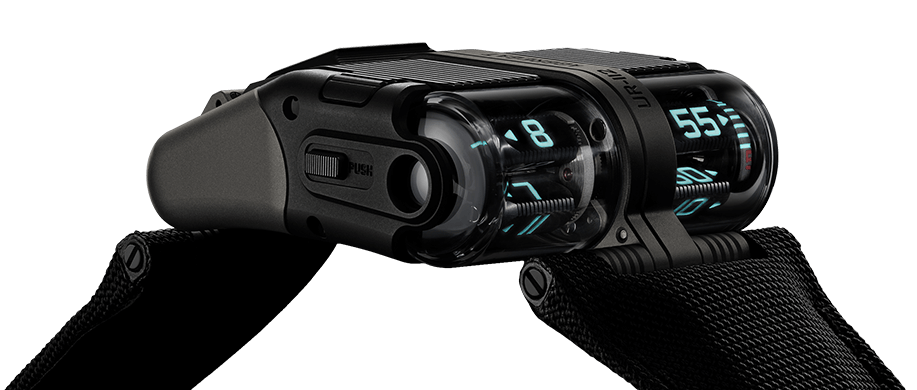


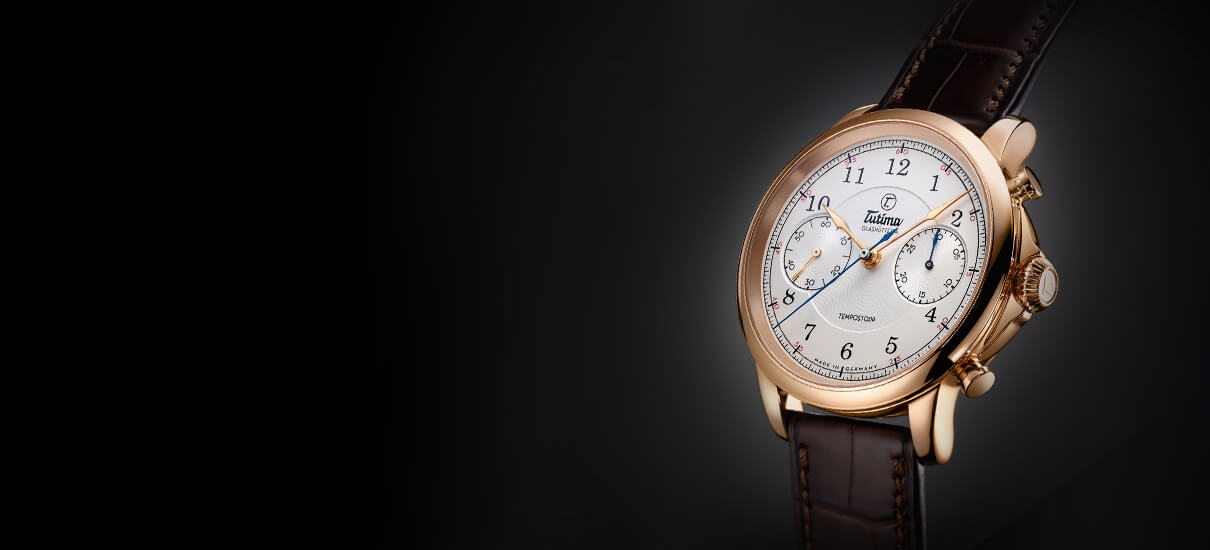

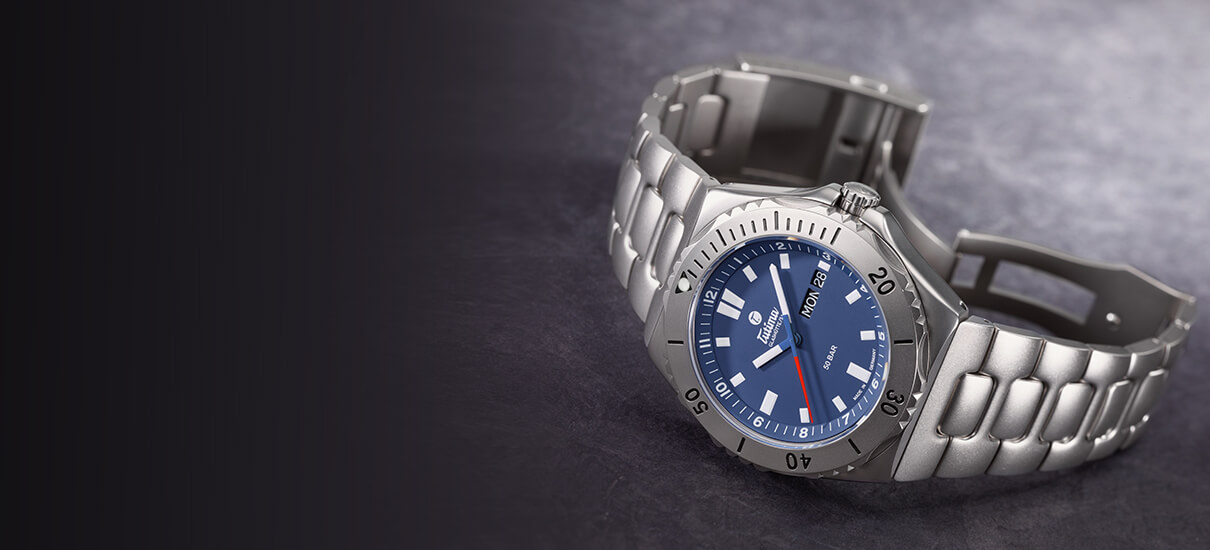

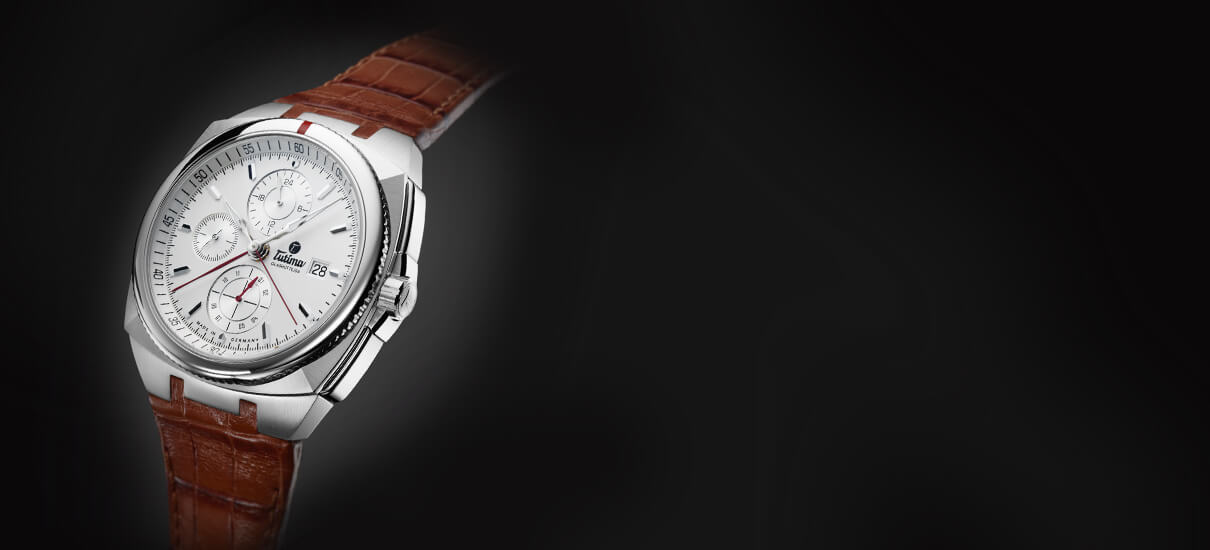

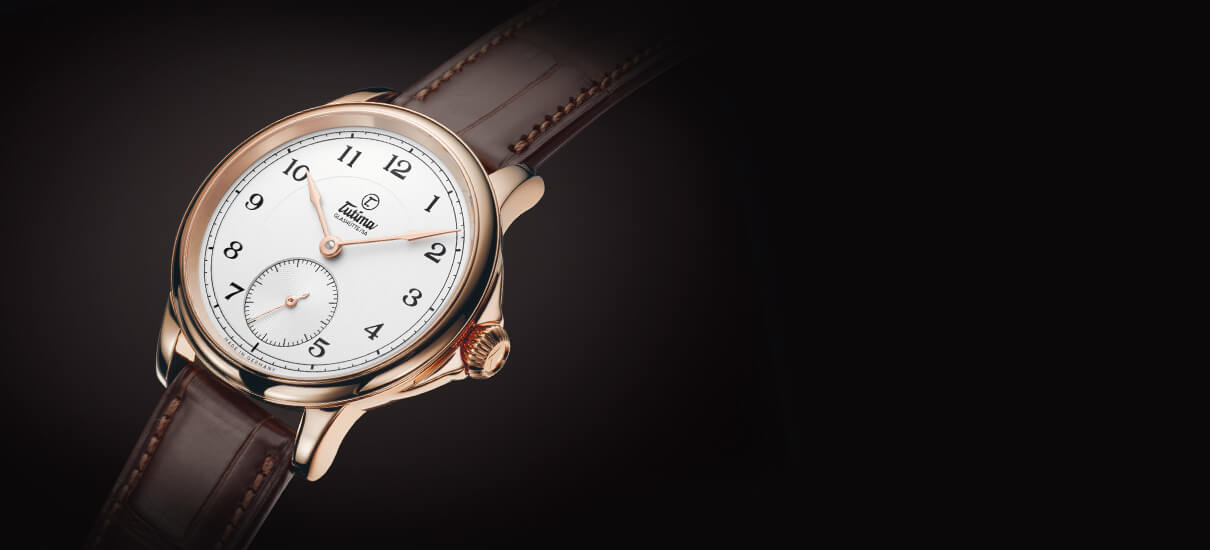

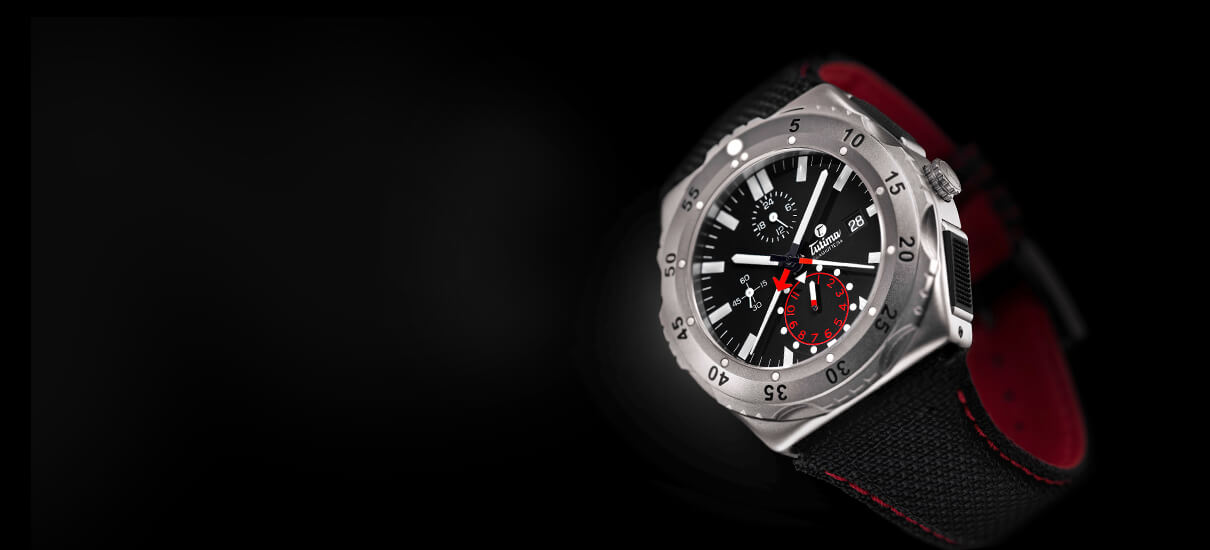

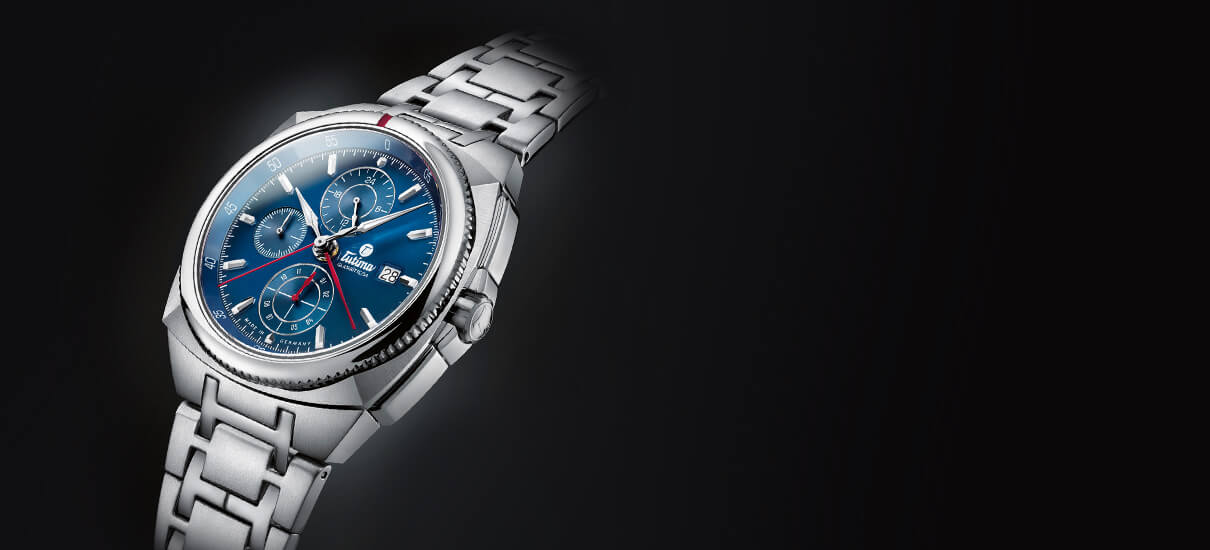

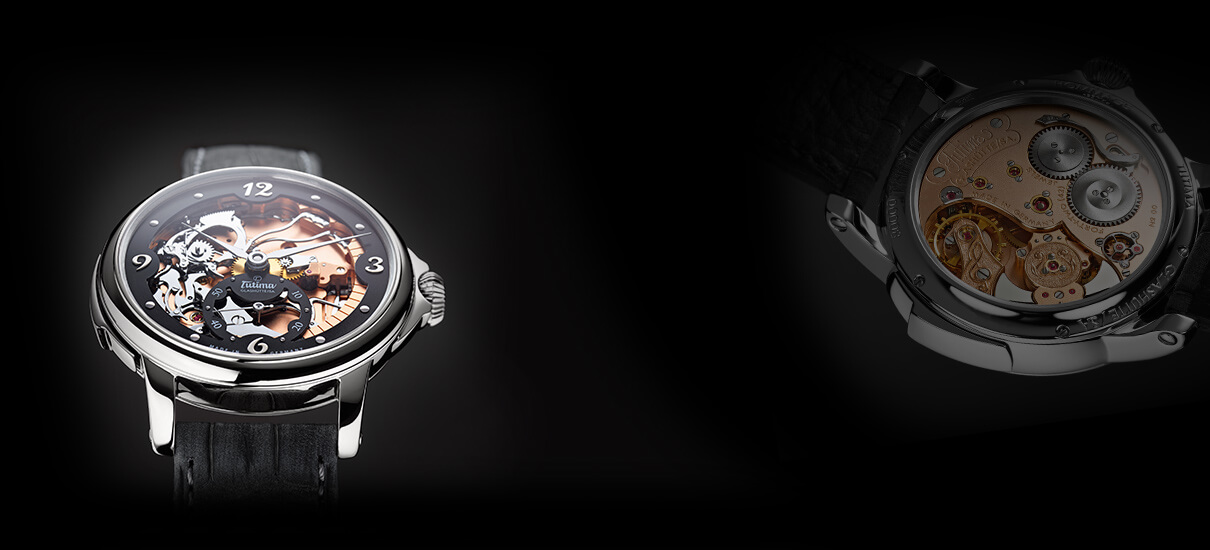



Absolutely stunning! You are quite fortunate to acquire your grail, wear it for many years and continue to feel about it as you did early on.
Great article about a great watch.
This notion that wristwatches didn’t exist at the time of the setting of The Sheik is just wrong. The film is clearly set in 1921. Lady Diana is dressed in contemporary clothing, there are electric lamps in many scenes, and she herself wears a wristwatch in her first appearance in the story.
Am using Rotonde de Cartier Rose Gold for five years now, and I would loved to have Louis Cartier tank, or de Santos..